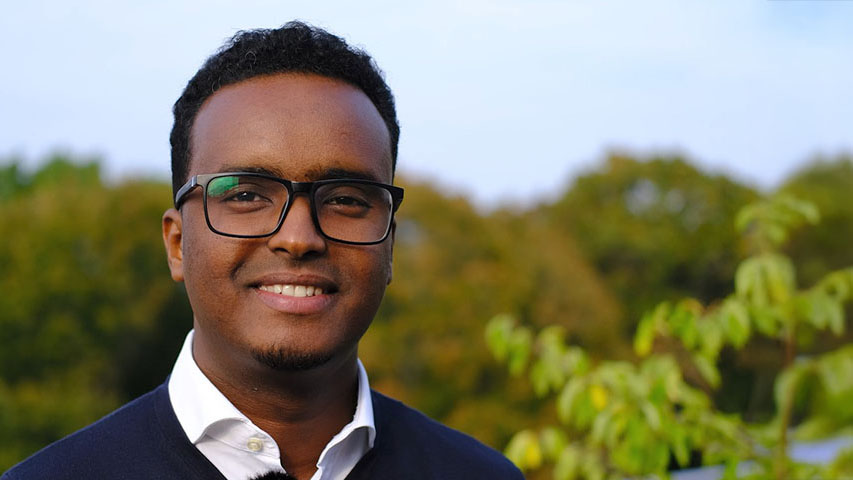We got the skills that we need in our daily operations
Zakaria Hassan is a Trade Advisor at the Ministry of Commerce and Industry of Somalia. He is also a participant on the Trade Academy’s Advanced Trade Policy Course 2023. Now he is ready to use his new skills to tackle the challenges of Somalia’s growing economy.

Zakaria Hassan tells about his key takeaways from Trade Academy’s Advanced Trade Policy Course.
How did you first hear about Trade Academy?
We were happy to receive an offer from the National Board of Trade in Sweden. I think this will be our third time. This time I felt I had to participate – I’ve seen the impact when my colleagues came back home; how they put things together in their trade policy analysis. So, I applied and luckily I was selected to come here.
What is the best thing about the Trade Academy?
One thing that caught my attention was the fishbone analysis. It was unique. The way the lecturers and the Trade Academy delivered that part was amazing. In our home assignment, we applied the fishbone analysis and the method that we were given during the course. And that’s something that attracted me. There were lots of things, but that was unique.
You had to deal with the challenges of a fictional country, Algabia. What was that like?
The Algabia thing was amazing! When we were learning about Algabia and how they are handling the economy, it felt like I was one of the Algabians. It was very well structured and well presented.
The case covers several subjects in terms of economic and trade policy analysis and decision-making. The Trade Academy gave us the knowledge to answer the questions and analyse the situation that Algabia is facing – importing, exporting and how to conduct trade. It was very useful and at the end of the day, you can apply your own context and similar situations that you face during your operations back home.
What are your key takeaways?
The things we got from the Trade Academy course were essential. How trade works; sustainability, environment, gender and how it affects everything, everywhere. How to promote your country, how to strengthen or increase your exports to neighbouring countries. How to make trade agreements. The point of being in regional blocs. All those things together are what we got from the Trade Academy.
My country is now joining the regional blocs and international markets as well. We are lucky to be here to get this education from the National Board of Trade, to support our goal of strengthening our economic development in Somalia.
How will what you learned change the way you work?
The current assignment that we have when we go back is demanding. The Trade Academy gave us insights on how to do things, and on how the EU market works, and the African Continental Free Trade Area as well as regional blocs.
Now we are planning to join the East African Community and we have to negotiate with the member states on what Somalia is offering. You can’t do that unless you have the capacity or the knowledge to talk to the member states who have already been in the market for so long. What we got from the course are the skills that we need in our daily operations. We are very grateful to be here and would like to thank the Trade Academy and the National Board of Trade, and the Swedish government for its support.
